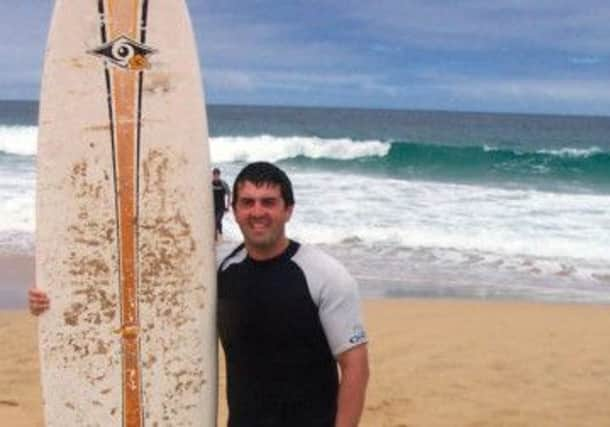Roger Cox: Orkney’s surfing scribe


Until a few years ago, surfing had produced surprisingly little in the way of decent literature. I say surprisingly not because surfers are a particularly literary tribe (although we’re not anywhere near as stupid as some Hollywood studios seem to think) but because surfing is just the kind of man-against-nature endeavour that great, existential yarns are made of. By the turn of the millennium, climbing, sailing and even fishing had all generated notable tomes, but surfing was still waiting for its Touching the Void, its Sailing Alone Around The World or its Old Man and the Sea.
Things began to look up in 1999, when the American journalist Dan Duane published Caught Inside, his memoir of a year spent surfing along the California coast. Thoughtful and lyrical, it redefined what a surfing book could be, focusing as much on the natural and cultural history of this iconic surf zone as on the act of surfing itself. Keeping up the British end, in 2007, was Alex Wade’s excellent Surf Nation – a journey through the esoteric surf culture of the UK that came across a little like Bill Bryson’s Notes From A Small Island, only with grinding, frigid, dark brown barrels lighting up the shorelines of otherwise tired, neglected seaside towns.
Advertisement
Hide AdAdvertisement
Hide AdAnd then, in 2008, the Australian writer Tim Winton gave us what was arguably the first truly great work of surfing literature: his intoxicating, multi-award-winning novel Breath, in which two teenage boys in smalltown Western Australia, Pikelet and Loonie, come of age while pushing each other into waves of ever greater consequence, egged on by a former professional surfer named Sando. Breath was even made Radio Four’s Book at Bedtime, and so middle-aged, middle-class audiences were able to swoon themselves to sleep while listening to such mellifluous lines as “I came home at dusk with my ears ringing from the quiet.”
There have been other notable additions to the canon of serious surf lit in recent years – honourable mentions should go to Andy Martin for Stealing the Wave (2008), his account of the fearsome rivalry between big wave chargers Ken Bradshaw and Mark Foo; and to Tom Anderson for Riding the Magic Carpet (2006), in which the author describes how he spent several years (not to mention thousands of pounds) getting himself physically and mentally ready to tackle the legendary pointbreak waves of Jeffrey’s Bay in South Africa.
The market for surfing books is still by no means saturated, but anyone entering this arena today had better have a novel story to tell and a novel way of telling it.
Which brings us to Orkney-based journalist David C Flanagan, whose new book Board has just been published by Edinburgh’s Fledgling Press. Happily, Flanagan’s memoir offers a surf story that’s original on two levels: firstly, it puts an unexpected spin on the man-deals-with-mid-life-crisis-by-learning-to-surf cliché by having its protagonist getting to grips with the Sport of Kings in some of the most inhospitable conditions imaginable, namely the board-snapping, bone-crunching reefs of Orkney’s Bay of Skaill; and secondly, it also details the author’s parallel attempts to rekindle his childhood love of skateboarding – a passion which came to a sudden end one Sunday morning in Leith when he accidentally ploughed through a column of veterans attending a Remembrance Day service.
While experienced surfers may find themselves wondering why Flanagan didn’t simply look for a nice beachbreak to learn on (at one point in the book he does exactly that, and suddenly starts to find life much easier) it’s impossible not to admire his sheer, bloody-minded determination, paddling out into the North Atlantic week after week, year after year, only to be pummelled by ten-foot walls of water and washed back to the beach with his confidence in tatters. His honesty, too, is admirable, both when describing the fear he feels when things go wrong and when analysing his reasons for trying to accomplish something that most people seem to think is nuts. And when he finally finds himself skimming across the open face of a wave at Skaill, following various injuries, near-death-experiences and long, dark nights of the soul, and is reduced “almost in tears” by the experience – well, you’d have to be a hard-hearted reader not to find yourself welling up a little too.